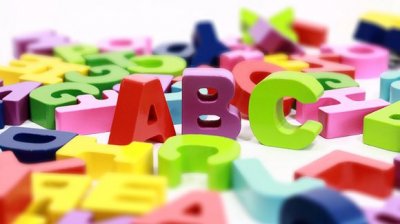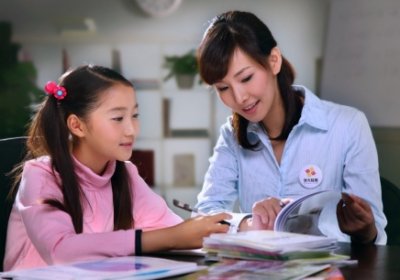六年级上册英语苏教版试卷
六年级上册英语苏教版试卷。之前大思英语小编为大家推荐了很多人教版的六年级英语试卷,今天呢大思英语小编就为大家带来了六年级上册英语苏教版试卷。希望对学习英语苏教版的同学有所帮助。
六年级上册英语苏教版试卷
班级 姓名 分数
听 力 部 分(30分)
一、听录音,选出你所听到的单词。(10分)
( )1. A. cloudy B. rainy C. sunny D. windy
( ) 2. A. packet B. protect C. past D. project
( ) 3. newspaper B. paper C. place D. palace
( ) 4. A. messy B. miss C. made D. make
( ) 5. A. waste B. wait C. wood D. water
( ) 6. A. Chinese New Year B. Christmas C. Thanksgiving D. Easter
( ) 7.A. project B. topic C. jacket D. subject
( )8. A. little B. litter C. let D. toilet
( ) 9. A. skin B. sky C. slip D. skate
( )10. A.spell B. smell C. still D. skin
二、听录音,选项合适的应答句。(5分)
( )1. A. They go to the cinema . B. They are farmers.
C. They don’t have any lessons today.
( ) 2.A. I’m fine . B. It was rainy . C. It is cloudy .
( ) 3.A. I visited my grandpa. B. I went to Guangzhou . C. I’m in the park.
( ) 4. A. Drive so much . B. Don’t drive so much . C. Eat so much.
( ) 5.A. Last week . B. Yesterday C. Next week.
三、听录音,根据所听短文判断正(T)误( F ),读两遍(5分)
( )1.Liu Tao and Mike went to the park .
( )2. Liu Tao and Mike watched an interesting film .
( )3. Liu Tao and Mike didn’t like the film .
( )4. Liu Tao and Mike talked loudly.
( )5. Liu Tao and Mike were very angry .
四、听录音,补全对话,读三遍(10分)
Our city __________ messy and dirty ________ of the _______ and rubbish. To keep the city _________ ,we should do our best . We can take the bus or ________ to school every day .
There is not much ______ or _____ on Earth .We should _______ ________ .We use _________ to make bags and bottles .
笔 试 部 分 (70分)
五、判断划线部分的读音是否相同相同的用S,不同的用D(5分)
( )1. danger plant ( )2.sign skin
( )3.smell messy ( )4.museum use
( )5.food wood
六、英汉短语互译。(10分)
1.浪费水____________ 2. 给他的朋友们写信___________________
3.观看舞狮表演_______ 4.take your juice into the cinema
5.收集一些纸 __________6.make a poster _______________
7.在一家购物中心__________8.on a sunny day ________________
9.许多工厂____________ 10.these pictures of our city
七、按要求写单词(10分)
1.catch(过去式)_______ 2.real (副词)________
3.foolish (反义词)_________ 4.cloudy (名词)_________
5.were (原形)_________ 6.bring (过去式)_________
7.Mike (名词所有格)________ 8.we (宾格)_______
9.much (近义词)___________ 10.hear (同音词)__________
八、单项选择。(10分)
( )1. You can’t take ________ into the classroom.
A. the book B.the schoolbag C. the dog
( ) 2.My father is a cook . He works in the __________ .
A. restaurant B. hospital C. Museum
( ) 3.Let me ______ some bananas _______ the trees.
A. draw; in B.draw ;on C. to draw ;on
( ) 4.It ________Children’s Day next Monday.
A. is going to B. is going to be C. was
( ) 5.I’m very happy to get an e-mail ______ my e-friend.
A.to B. from C. with
( )6. I think Jim and you will _______ good friends .
A.are B.is C. be
( )7.When do we often _______ ? In spring .
A.plant trees B. make snowmen C. swim
( ) 8.Look!There’s a big stone in the middle of the road .Let’s _______ .
A. move away it . B.move it away C. moves away it
( ) 9.When is National Day ? It’s on _________.
A. June 1st B October 1st C. September 1st
( ) 10.We ________ a parrot show in the school this afternoon and it was very interesting .
A. looked at B. watched C. saw
九、用所给词的适当形式填空。(10分)
1. The boy behind me is _________ (write ) a letter.
2. Would you like _________ (listen ) to some music ?
3. Look , he can ________ (fly ) a kite on the grasss.
4. _________ your cousin always like _______ (ask ) a lot about Maths?
5. My brother often ________ (play ) football at the weekend.
6. The students are very ______ (excite ).
7. I _______ (finish) primary school next year.
8. Her aunt ________ (give) a red packet to her yesterday.
9. Rubbish _________(make ) the water dirty .
十、根据汉语提示,完成下列句子。(10分)
1.我们用木头做床,椅子和许多其他的东西。
We use _______ to make beds, chairs and many _______ things.
2.孩子们正在图书馆里看书,请不要说话。
The children are ________ _______ in the library .Please don’t _______.
3.海伦六岁时就会跳舞。
Helen _______ dance when she ______ six years old.
4.你能用鸡蛋造句吗? 是的,我昨天吃了一个。
Can you _______ egg to make a sentence ? Yes . I ______ an egg yesterday .
5.有时候我的爸爸不在家吃饭。
Sometimes my father _______ (not have ) lunch at home .
十一、按要求改写句子,(5分)
1. Ben saw some public signs in the restaurant . (改为一般疑问句)
______ Ben _______ _______ public signs in the restaurant?
2. She had an Art lesson this morning .( 用tomorrow morning 改写句子) She is ______ _______ _____ an Art lesson tomorrow morning .
3. Where did you visit ? (改为同义句)
_______ _______ did you visit ?
4. I was in the playground just now .(改为一般疑问句 )
_______ ______ in the playground just now ?
5.Liu Tao visited his uncle last week .(对划线部分提问)
_______ _______ Liu Tao ______ last week ?
十二、阅读理解。(10分)
Many Chinese people have a good time during (在……期间) the Chinese New Year .It usually comes in January or February .Each year gets a name . It may be called the year of the Dog or the year of the Monkey instead of (代替) 1970 and 1980.
Usually there is dragon (龙) dance in the street .The dragon is a strange (奇怪的) animal about 20 feet (英尺 hide (藏) under the dragon , and make a lot of noise by shouting and
laughing .There are always a lot of fireworks (烟火) .
After the dragon dance , the children sing and dance in the street .
根据短文内容判断正( T )误( F )
( ) 1.The Chinese New Year usually comes in October .
( ) 2.The Chinese people call 2012 the year of the dragon .
( ) 3.The dragon was made of paper and fruit .
( ) 4.The dragon dance needs a lot of animals .
( ) 5.After the dragon dance ,the children sing and dance .
十三.课外阅读(20分) A
It was a rainy morning.Tina was getting ready to leave her house.She put on her raincoat and carried an umbrella.The rain beat on her.She felt cold and wet.She wore a pair of slippers to walk to walk to school.She would change into her school shoes when she reached school.Her school shoes and socks were in her bag so that they would not get wet.
It was difficult to see where she was going because the rain was heavy.The ground was wet and slippery.She walked slowly and carefully so she did not slip and fall.She also had to be very careful of passing cars that might splash water on her.She was eager to reach the school so that she could dry herself and get out of the cold.
( )1.It was a sunny morning.
( )2.Tina didn’t put on her raincoat.
( )3. Tina’s school shoes and socks were at home. w
( )4. Tina walked slowly and carefully so she did not slip and fall.
( )5. Tina was eager to reach the school so that she could dry herself and get out of the cold.
B
1913,the US Government made the second Sunday of May Mother's Day.
She gave birth to you. She makes your food.She helps you with your homework.She gives all her love to you.Who is this person?She is your mother.Mother's Day is a day for us to show love to our mothers.On Mother's Day lots of people give their mother gifts,like cakes and cards.Many people also give them carnations.In the language of flowers,carnations mean best wishes for mothers.
1. Where did the Modern Mother's Day begin ( )
A.In the UK B.In the US C.In china
2. 2.Who started Mother's Day? ( ) w
A.The king B. The government C. Anna Jarvis
3. 3.When is Mother's Day? ( )
A It's on the first Sunday of May Mother's Day.
B. It's on the second Saturday of May Mother's Day.
C.It's on the second Sunday of May Mother's Day.
4. Give a title for this artile. ( )
A. Father's Day B.A specil day for Mum. C.Buy flowers for mothers
5.What can we do on Mother's Day?
听力与答案
听力内容
一、听录音,选出你所听到的单词。(10分)
1. rainy 2. protect 3. palace 4. messy 5. wood 6. Christmas 7. project 8 . litter
9. slip 10. skin
BBDAC BABCD
二、听录音,选项合适的应答句。
1. What do they do ? A
2.What was the weather like ? B
3.Where did you go last Sunday ? B
4.What can we do to save energy ? B
5.When are you going to visit your grandparents ? C
三、听录音,根据所听短文判断正(T)误( F ),读两遍
Last weekend , Liu Tao and Mike went to the cinema . They watched a film . The film was very interesting , they liked the film very much . But two men sat behind them . They talked loudly . Liu Tao and Mike were very angry .(FTFFT )
四、听录音,补全对话,读三遍(10分)
Our city becomes messy and dirty because of the smoke and rubbish. To keep the city clean ,we should do our best . We can take the bus or walk to school every day .
There is not much coal or oil on Earth .We should save energy .We use plastic to make bags and bottles .
笔 试 部 分 (70分)
五、判断下列划线部分的读音是否相同,相同的用 S,不同的用 D
1.D 2.D 3.S 4.S 5.D
六、英汉短语互译。
1.waste water 2. write to his friends 3.watch a lion dance 4.把你的果汁带进电影院。
lect some paper 6. 做海报 7.at a shopping centre 8.在晴朗的日子
9.many factories 10. 我们城市的这些图片
七、按要求写单词
9.many
10.here
八、单项选择。
CABBB CABBC
九、用所给词的适当形式填空。
Writing , to listen , fly ,Does asking , plays , excited , am going to finish (will finish) ,gave ,makes
十、根据汉语提示,完成下列句子。
wood , other , reading ,books , talk ,could ,was ,use ,ate ,doesn’t have 十一、按要求改写句子
1.Did see any 2. going to have 3.What place 4.Were you 5.What did do
十二、阅读理解。FTFFT
十三、A.FFFTT B.BCCB
命题意图
本张试卷紧扣六年级上册:皇帝的新装,多么糟糕的一天,假日乐趣,过去和现在,标志,保持我们城市干净,保护地球,中国新年这八个单元的单词、短语、句子的音,形,义,进一步让学生巩固:用英语谈论有关天气、名胜古迹、电子产品、假日旅游、环境保护、春节等内容,理解一般现在时态,过去时态,将来时态,激发爱国情绪,培养人文意识。
第一题:主要检测学生对本册单词的掌握程度。
第二题:检查学生是否掌握了四种时态的肯定、疑问表达。
第三题:检查学生的听力。理解水平;
第四题:检查学生对课文的掌握程度。
第五题:检查学生对本册书字母组合在单词中的发音。
第六题:检查学生对8个单元的短语掌握情况。
第七题:检查学生的各个知识点。
第八题:检查学生对四种时态,课文短语的掌握状况。
第九题:检查学生的四种时态表达
第十题:检查学生对时态辨析和否定式表达。
第十一题:检查学生改写句子的能力。
第十二到十三题:检查学生的综合理解能力。
六年级上册英语苏教版试卷,同学们学习英语,想要英语成绩好,英语知识积累是很有必要的。下面大思英语为大家带来2018年苏教译林版小学六年级英语上册单元知识汇总,一起来学习吧。
6BUnit 1 The lion and the mouse 知识汇总
一、四会单词
ge大的 2. strong强壮的 3. quietly安静地;小声地
4. Weak虚弱的 5. loudly大声地 6. happily开心地;高兴地
二、三会单词
老鼠mouce 复数mice 走过,路过walk by 吵醒,叫醒 wake …up
某一天same day 释放不能,放开let… go 第二天the next day
网net 咬bite 锋利的,尖的sharp 难过地,伤心地sadly 就在那时just then 不久,很快soon 从那时起from then on 欢呼cheer 打,击hit 深的deep 够得着reach
迅速地,快地quickly 把……倒入pour …into
三、短语积累
狮子和老虎 the lion and the mouse mouse: 复数 mice
辨析 mouth嘴巴 month月份
又大又强壮large and strong
又小又弱small and weak
走过… walk by 走过森林walk by the forest
把狮子叫醒 wake the lion up (代词宾格放中间) wake me up
我能在某一天帮助你I can help you some day
将来不确定的某一天Some day:
安静地说say quietly quiet→quietly
大声地笑道laugh loudly loud→loudly
让狮子走let the mouse go let sb do
第二天the next day
用一个大网抓住狮子catch the lion with a large net catch过去式:caught
用他的锋利的牙齿咬网 bite the net with his sharp teeth (tooth)
bite过去式: bit
出来get out
伤心地问道ask sadly sad→sadly
就在那个时候just then
在网里弄了个大洞make a big hole in the net
开心地说say happily happy→happily
从那时起from then on
成为好朋友 become good friends become +形容词 变得如何…
糖果店sweet shop
一个棒棒糖a lollipop
他会说什么? what will he say?
没关系It doesn’t matter.
伊索寓言Aesop’s Fables
一本中文成语书a Chinese idiom book
开心地打乒乓play table tennis happily
擅长be good at+名词 // be good at +动词ing
大声地为他们欢呼 cheer for them loudly cheer for为…欢呼
击球用力hit the ball hard hit打,击 (过去式: hit):
最后finally 近意: at last 太深too deep
我够不到I can’t reach it reach到达 reach my school
迅速地拿一些水来bring some water quickly
把它倒进洞里pour it in the hole 干得好! Well done
四、四会句子
The mouce said quietly. 老鼠小声地说。
The lion laughed loudly.狮子大声地笑。
五、重点句型,语法点拨
1、语法
常见副词 well: study well学习好 skate well滑冰好
(注: well 若表示形容词,则意思为 身体好)
fast: run fast 跑得快 swim fast游泳快
loudly: laugh loudly 大声得笑 speak loudly 大声地讲
sadly: ask sadly 伤心地问 cry loudly 伤心地哭
happily: sing happily 开心地唱 talk happily 开心的谈话
carefully: listen carefully 认真地听 walk carefully 小心地走
angrily: ask angrily 愤怒地问
quietly: do one’s homework carefully 安静地做作业
Sleep quietly 安静地睡
quickly: bring some water quickly 迅速地拿些水来
beautifully: dance beautifully 唱歌唱得美
★系表结构: (注意不用副词)be, feel, look, sound, smell, become, keep + 形容词
★fast ,hard ,high,early,late, 形容和副词同形
2、一般过去式常用的时间壮语
ago / long long ago / yesterday / the day before yesterday in 2014 / just now(刚才) / at the age of 5(在五岁时) / once upon a time从前 / one day / last week, year, night, month
from then on
3、speak ,talk,say,tell区别
Speak强调方式 say强调内容,tell后一定要加人或讲的内容 talk强调连续说
Unit2Good habits知识汇总
一、四会单词
1、habit 习惯 2、tidy干净的;整齐的 3、fast 快的
4、never 从不 5、late 迟的 6、finish完成
二、三会单词
把……放得井井有条put…in order 不好的,坏的bad
困的,困倦的sleepy 昨夜last night 走进,走入go into 慢速地slowly 差地,不好badly
三、短语积累:
1、a good boy 一个好男孩
2、have many good habits 有许多好习惯 一个坏习惯 a bad habit
3、get up early in the morning在早晨早早得起床
4、never go to bed late 从不晚睡觉
5、go to bed early 早早睡觉 6、before bedtime 睡前
7、go to bed late last night 昨晚很晚睡觉
8、finish his homework完成家庭作业 10、before dinner在晚饭前
11、after lunch午饭后 12、shouldn’t go home late 不应该晚回家
13、do well at home在家做得好
14、keep his room clean and tidy 保持房间干净并整洁
15、also help his parents do housework 也帮助他的父母亲做家务
16、do his homework late at night 在晚上家庭作业做得晚
17、brush his teeth刷他的牙齿 18、feel sleepy感觉困得
19、know her well 非常了解她
20、always put things in order
总是把东西摆得井井有条
21、walk fast/slowly走得快/慢 22、run very fast 跑得非常快
23、listen to his teacher at school 在学校听老师讲
24、have breakfast on time 准时吃早饭
27、wash your face at seven o’clock 在七点洗你的脸
28、come to see her 来看她
29、show you around the house 带你参观房子
30、go into the living room 进入起居室 31、big and clean 又大又干净
32、small and nice 小而干净 33、a lot of books and toys 许多书和玩具
34、on the floor 在地上 35、under the bed 在床下
36、put your books and toys in order把你的 38、sing badly 唱得不好
39、do badly 做得不好 40、swim well游得好 42、pick one 挑一个
43、pick up 捡起来 Pick it up/pick them up
43、pick apples 摘苹果 45、in the street在街上
三、重点句型
1.He gets up early in the morning and never goes to bed late.他早上起床早,从来不晚睡。
2.My sister brushes his teeth in the morning and before bedtime. 我妹妹在早上和睡觉前刷牙。
3.I always put my things in order. 我总是把我的东西整理得井井有条。
4.We usually finish our homework before dinner. 我们通常在晚饭之前完成家庭作业。
5. They listen to their teachers at school. 他们在学校听老师的话。
6.He also does well at home. 他在家也表现得好。
7.He keeps his room clean and tidy. 他保持他的房间既干净又整齐。
8.He often does his homework late at night and does not go to bed early.
他经常做作业做到深夜并且不早睡。
9.He sometimes feels sleepy in the morning. 他有时在早上感觉困。
Bing knows Liu Tao well. 王兵很了解刘涛。
11.Did you go to bed late last night? Yes, I did./ No, I didn’t.
你昨晚睡得晚吗?是的,我是。/不,我不是。
12.Let me show you around our house. 让我带你参观我们的房子。
13.I always have my lunch on time. 我总是准时吃午饭。
14. You should put your books and toys in order. 你应该把你的书和玩具放得井井有条。
15. The man is singing badly. 男士正唱歌唱得糟糕。
16.The boy is doing well at school. 男孩在学校表现得很好。
Unit 3 A healthy diet知识汇总
一、四会单词
1.healthy健康的 3.a little一点 2.diet 饮食 4.need 需要 5 a few 几个
二、三会单词
at a time 一次 cola 可乐
三、短语积累
1.a little water 一点水2. a few eggs 几个鸡蛋
3.at a time 一次 4.too much 太多
5.a healthy diet 一个健康的饮食 6.every day 每天
7.every week 每周 8. a lot of rice 很多米饭
the fridge 在冰箱里 10.go home 回家
11.have a rest 休息一下 12. take a small bottle 拿了一小瓶
13. too much cola 太多可乐 14. too heavy 太重了
15. go to the supermarket 去超市
16. There’s not too much food…不多的食物……17. some drinks 一些饮料
18. this big fish 这条大鱼 19. take the big bag 拿这大袋子
20. sweet food 甜食
四、重点句型
1.I eat a lot of noodles. 我吃很多面条。
2.We eat a lot of meat. 我们吃很多肉。
3.They have some vegetables. 他们吃一些蔬菜。
4.You have some bread. 你们吃一些面包。
5.He eats a few eggs. 他吃几个鸡蛋。
6.She drinks a little water. 她喝一点水。
7.You shouldn’t drink too much cola. 你不应该喝太多的可乐。
8. Can we have a rest? 我们能休息一下吗?
9. She eats a little rice. 她吃了一些米饭。
五、语法解析
①a lot of 、lots of表示许多: +可数名词/不可数名词。
Many/much 也表示许多
Many+可数名词
Much+不可数名词
some表示一些, +可数名词/不可数名词。用于肯定句
any表示一些, +可数名词/不可数名词。用于否定定句
a few与 a little都表示数量虽少但毕竟还有,强调有。
a few+可数名词,
a little+不可数名词。
No 表示没有+可数/不可数名词
②名词变复数形式,有很多种情况
直接加s
以s,x,sh,ch结尾加es
以辅音字母加y结尾去y为ies
f或fe结尾变f或fe为ves
有些以辅音字母加o结尾的加es,如 mango—— mangoes potato—potatoes tomato——tomatoes
名词的不规则变化Mouse-mice child-children tooth--teeth
Unit4 Road safety重点知识归纳
一、四会单词
road马路,公路 must必须 safe安全的 follow遵守 light灯
二、三会单词
safety安全 cross穿过,穿行 safely安全地 zebracossing斑马线pavement人行道lookoutof当心,提防 easily容易地 rule规则 stay保持
三、短语积累:
1. road safety 道路安全 2. many busy roads 许多繁忙的道路
3.in the city在城市里 4. cross the road safely 安全地过马路
5. cross a busy road safely安全地通过一条繁忙的马路
6. look at the traffic lights 看交通灯7. wait for the green man 等待绿灯
8. see the red man 看红灯 9. keep safe 保持安全
10. wait on the pavement 在人行道上等待
11. look out for cars and bikes 小心小汽车和自行车
12. look left看左边 13. look right 看右边
14. also cross the road with other people 也可以和其他人一起过马路
15. see you easily很容易看见你 16.some children 一些孩子们
17. a child 一个孩子 18. play on the road 在路上玩
19. many cars and bikes 许多小汽车和自行车 20. follow the rules 遵守规则
21. stay safe on the road 在路上保持安全
22. must look for a zebra crossing 必须寻找一条斑马线
23. wait for the bus 等待公交车 24. wait for me 等我
25. the other people 其他人
26. must look for a zebra crossing必须寻找一条斑马线
27. find a zebra crossing找到一条斑马线
28. mustn’t run quickly 绝不能快速地跑步
29. mustn’t walk 绝不能行走
30. the left side of the road 马路的左边
31. drive on the right side of the road 马路的右边驾驶
32. except me 除了我 33. except Macau除了澳门
34. go to see their aunt去看他们的阿姨
35. take the bus 乘车 36. get on the bus 上车
37. get off the bus 下车 38. so many cars 如此多的车
39. so much water 如此多的水 40. go fast 快点去
41. a red light 一个红灯 42. look at the green light 看绿灯
43. at the bus stop在公交车站 44. must stop 必须停下来
45. go on 继续,继续前进 46. run fast 跑得快
47. go to see the doctor 去看医生 48. you’re sick 你生病了
49. classroom rules 班级规则 50. play ball games 玩球类游戏
51. talk loudly 大声地谈论52. keep your desk clean 保持桌子干净
53. listen to your teachers in class 在课堂上听老师
四、重点句型:
1.你如何安全地过马路?我必须寻找一条斑马线。
A: How can you cross the road safely?
B: I must look for a zebra crossing.
2.为了安全地过马路你必须做什么? 我必须看交通灯。
A: What must you do to cross the road safely?
B: I must look at the traffic lights.
3. 为马路上你们绝不能做什么?我们绝不能在路上玩。
A; What must you not do on the road ?
B: We mustn’t play on the road.
4.你不能在这过马路。
You can’t cross the road here.
5. 我能看电视吗?不,你不能。现在晚了。你必须去睡觉。
A: Can I watch TV?
B: No, you can’t. It’s late.
You must go to bed.
6. 我必须去看医生吗? 是的,你一定要去。你不能去学生因为你生病了。
A: Must I go to see the doctor?
B: Yes, you must.
You can’t go to school because you are sick.
五、语法知识解析
1三个含有look的短语意思各不相同:
look for寻找 look at 看 look out for当心,留神
2区分safe,safety,safely:
safe是形容词,译为安全的 I am safe now. 现在我安全了。
safety是名词,译为安全 road safety道路安全。
safely是副词,用于修饰动词或形容词,译为安全地 We walk to school safely. 我们安全地走到学校。
3 must 和can用法
1)must和can都是情态动词,后面跟动词原形。常用的情态动词还有:should、 may 等。
2)can的基本用法:①表示能力。He can sing.
②表示许可。Can I go now?
③表示请求。Can I have some paper?
3) must的基本用法:①表示必须的意思。You must do your homework now.
②表示必然的结果。The sun must rises from the east.太阳必定从东方升起。
mustn't却表示"不要、不能、禁止"的意思,语气较强. We mustn’t play on the road
6B Unit5 单元知识汇总
一、四会单词
Children’s Day儿童节 begin开始 end结束
二、三会单词
Clown小丑 appear出现 balloon气球 put on上演,表演
三、短语积累
1、Children’s Day 儿童节 2、on Children’s Day 在儿童节
3、this Sunday 这周日 4.have a party 举办聚会
5、at the party 在聚会上 6、buy some snacks and drinks 买些零食和饮料
7、bring some fruit from home 从家里带些水果
8、bring their things to Mike’s house 把他们的东西带到了迈克家
9、play with her friends 和她的朋友一起玩
10、play with the toys first 先玩玩具
11、at Mike’s house /in Mike’s home 在迈克家
12、Sunday morning 星期天上午 13、on Saturday afternoon 在星期六下午
14、just then 就在那时 15、some balloons 一些气球
16.have some fun 玩会儿 .玩得开心 17、look out of the window 朝窗外看
18. look out for 小心,当心 18、the lovely snow 可爱的雪
19、go to a Western party 去一个西方的派对 20、take a gift 带个礼物
21、arrive too early 到得太早 22、be a few minutes late 迟到几分钟
23、play the piano 弹钢琴 24、tell a story 讲故事
25、put on a play 表演一个戏剧 26、wear his new clothes 穿他的新衣服
27、think of some party games 想一些聚会游戏
28、know about parties 知道有关聚会的知识
29、answer Mike’s question 回答麦克的问题
30、do sth. for the party 为聚会做某事32.look for some fruit 寻找一些水果
33、look after the little child 照顾小孩34、look at the blackboard 看黑板
35、borrow some books 借一些书36、have a party 进行一个聚会
37、a clown appears 一个小丑出现了38、begin our party 开始我们的聚会
39.end the party 结束聚会40、buy something for the party 为聚会买些东西

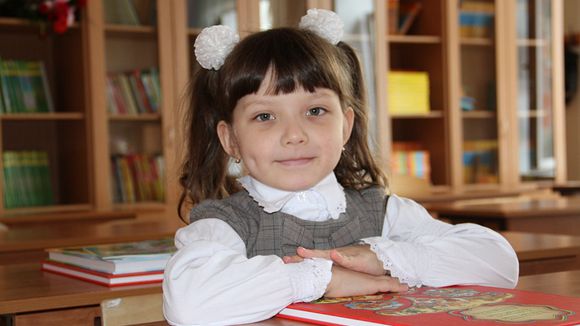
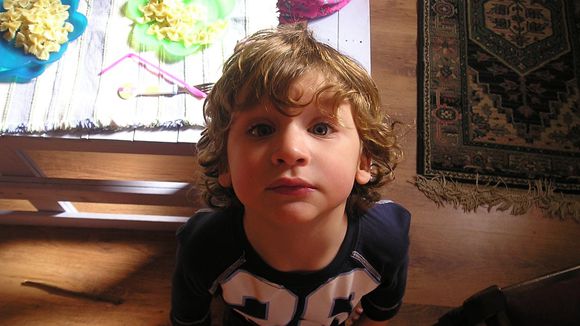
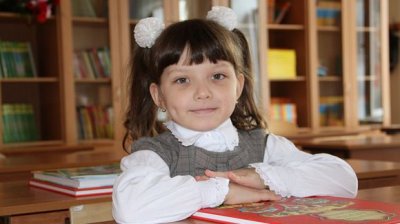
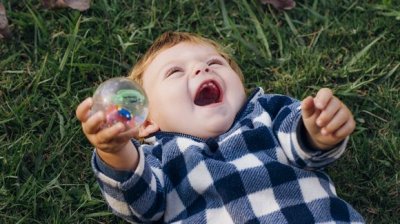

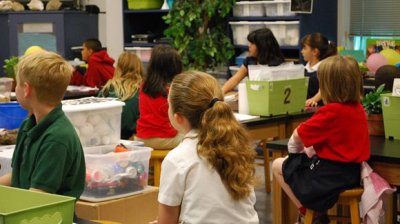
 儿童英语歌的学习技巧
儿童英语歌的学习技巧 小学六年级英语如何复
小学六年级英语如何复 小学三年级下册英语摘
小学三年级下册英语摘 小学四年级英语练习题
小学四年级英语练习题 小学四年级英语上册期
小学四年级英语上册期 小学五年级暑假英语作
小学五年级暑假英语作 2018小学五年级英语考
2018小学五年级英语考 2018小学二年级英语题
2018小学二年级英语题 六年级英语学习重点归
六年级英语学习重点归 简单的宝宝英语歌曲推
简单的宝宝英语歌曲推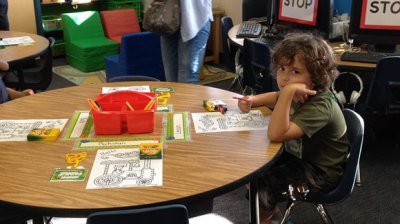 小学二年级怎么学英语
小学二年级怎么学英语 小学英语日记带翻译
小学英语日记带翻译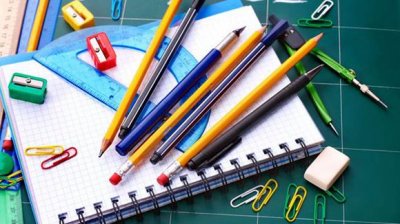 小学六年级英语课时作
小学六年级英语课时作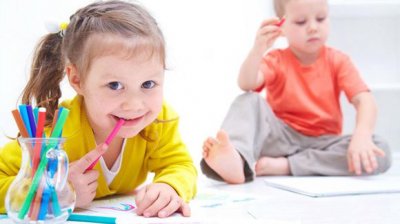 小学六年级英语复习试
小学六年级英语复习试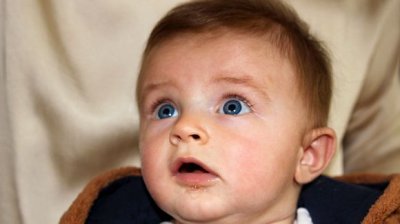 教我学英语的游戏有哪
教我学英语的游戏有哪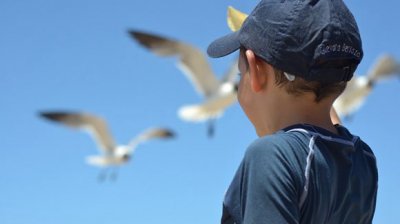 宝宝婴儿幼儿学英语如
宝宝婴儿幼儿学英语如